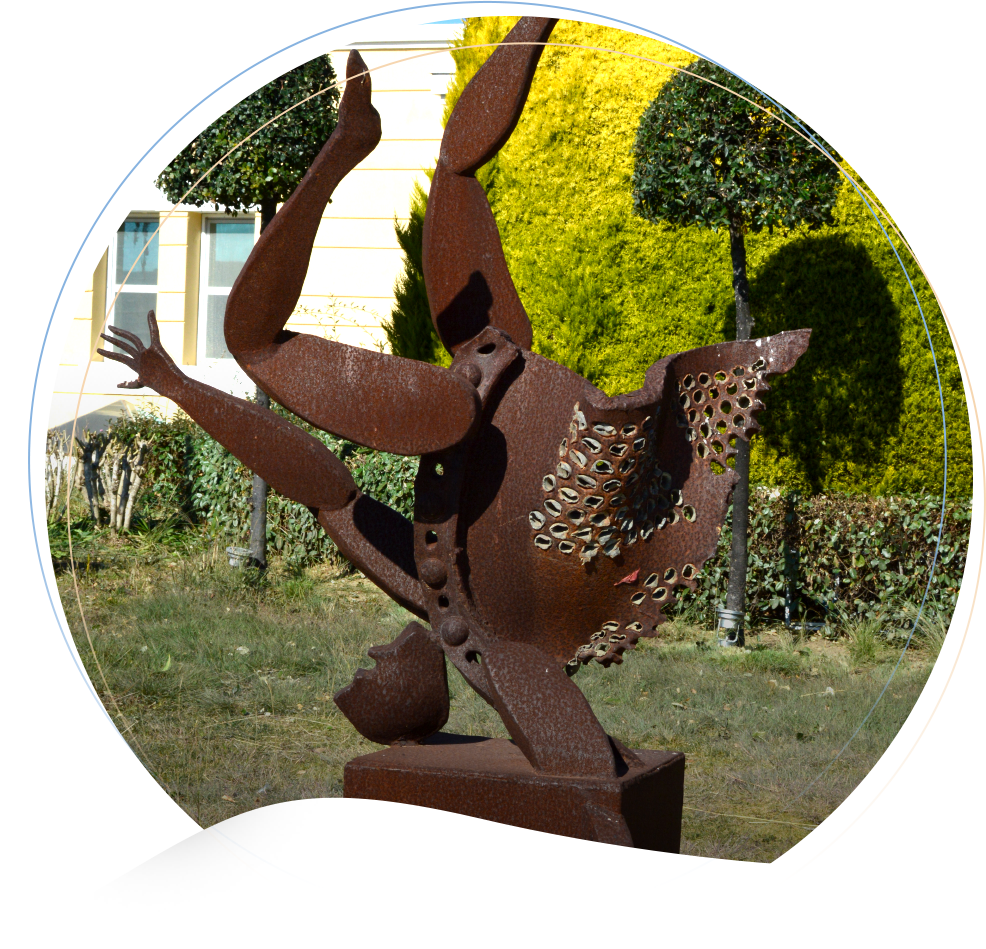Icarus became known in ancient Greek mythology because of his hubris. His father was Daedalus, a skilled craftsman and ingenious builder, who resided in the city of Athens. He was known for his skill as an architect and inventor, and he produced many famous works. Despite his self-confidence, Daedalus once committed a crime of envy against Talus, his nephew and apprentice. For this crime, Daedalus was exiled to Crete and placed in the service of King Minos, where he eventually had a son, Icarus, with the beautiful Naucrate, a mistress-slave of the King.
Minos called on Daedalus to build the famous Labyrinth in order to imprison the dreaded Minotaur, a monster of Crete that had the body of a man and the head of a bull.
The center of the Labyrinth became the Minotaur’s dark dwelling place. There, the monster was regularly fed with human flesh, specifically that of fourteen young Athenian noble men and women. These were sent as a sacrifice by the city of Athens to Minos on a yearly basis in recompense for the death of his son, Androgeus, whom the Athenians had once killed out of jealousy for beating them at the Panathenaic Games.
Theseus, an Athenian hero, volunteered himself to be sent to the Minotaur in the hopes of killing the beast and ending the "human tribute" that his city was forced to pay Minos. When Theseus arrived to Crete, Ariadne, Minos's daughter, fell in love with him and wished to help him survive the Minotaur. Daedalus revealed the mystery of the Labyrinth to Ariadne who in turn advised Theseus, thus enabling him to slay the Minotaur and escape from the Labyrinth. When Minos found out what Daedalus had done he was so enraged that he imprisoned Daedalus & Icarus in the Labyrinth themselves.
Daedalus conceived to escape from the Labyrinth with Icarus from Crete by constructing wings and then flying to safety. He built the wings from feathers and wax. Before escaping, Icarus' father warned his son not to fly too close to the sun, nor too close to the sea, but to follow his path of flight. But the young Icarus, overwhelmed by the thrill of flying, did not heed his father's warning, came too close to the sun and due to the heat the wax melted. He fell into the sea and drowned in the area which today bears his name, the Icarian sea, near the Greek island of Icaria.
The ancient Greeks called arrogance and overconfidence hubris. Unfortunately, Icarus became a model for this flaw. Even today, some people recount this story as a cautionary warning. Overconfidence sometimes produces disastrous results!


 ALL STATUES
ALL STATUES